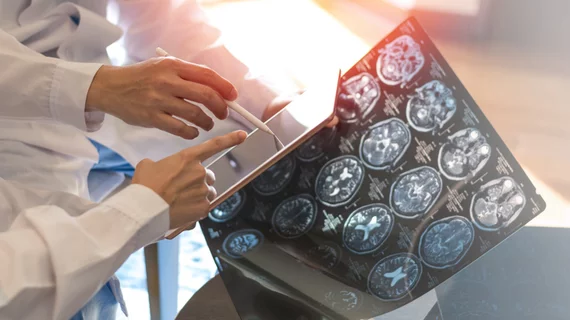Brain imaging alternative to functional MRI may ‘change neuroimaging forever’
California doctors say a novel brain imaging technique may eventually supplant functional MRI and permanently change neuroimaging.
USC Keck School of Medicine physicians paired up with California Institute of Technology researchers to create detailed brain images using functional photoacoustic computerized tomography. fPACT had previously been used in animals and tissue models but, until now, never in human patients.
Charles Liu, MD, PhD, director of the USC Neurorestoration Center and professor of clinical neurological surgery, called the new findings a landmark in functional brain imaging.
“Our study subjects had undergone hemicraniectomy [the temporary removal of a large portion of the skull], which enabled us to test the technology without interference in fully awake humans prior to skull reconstruction surgery. Thanks to their participation, we discovered fPACT is capable of creating functional brain images that are superior in some ways to 7T fMRI,” Liu added in a June 9 news update. “This may be something that will change neuroimaging forever.”
In the proof-of-concept study, photoacoustic CT produced accurate 3D maps of blood flow in those with traumatic brain injuries. And the scans stacked up well to state-of-the-art 7T MR images.
Liu and colleagues envision fPACT assisting with a variety of conditions, including everything from vessel and tumor imaging to pinpointing brain function and seizures.
The current gold standard—functional MRI—has been criticized for its limitations and high price tag. Co-investigator Jonathan Russin, MD, an associate director of the USC Neurorestoration Center and assistant professor of clinical neurological surgery, believes this technique can overcome those shortcomings and more.
“fPACT costs less than MRI, is potentially portable, is accessible to patients with implants and eliminates the claustrophobic/magnetic MRI environment,” Russin added. “This study is a first for functional human brain imaging—and, we believe, a critical step forward in advancing the field.”
The full investigation was detailed May 31 in Nature Biomedical Engineering.

